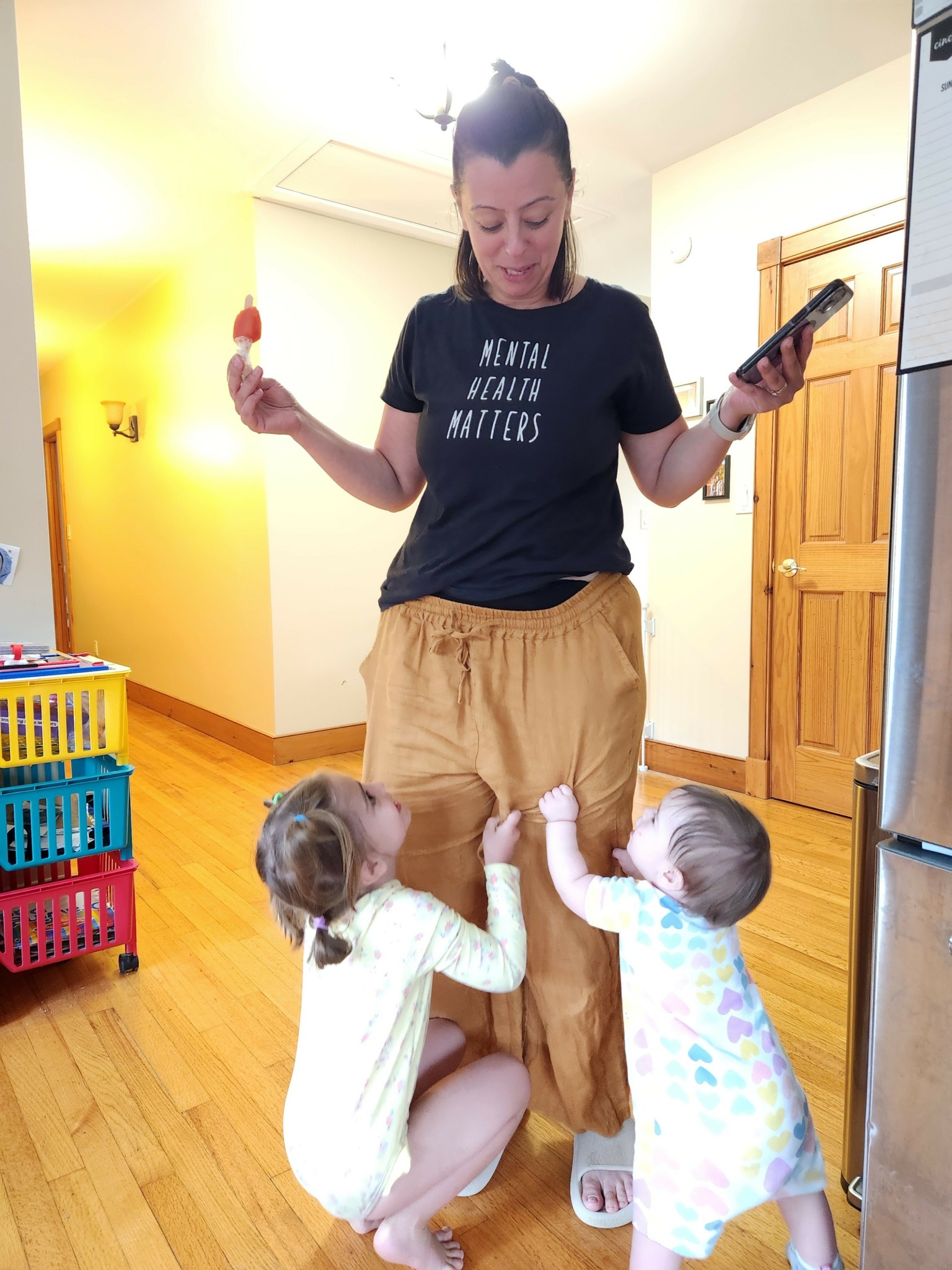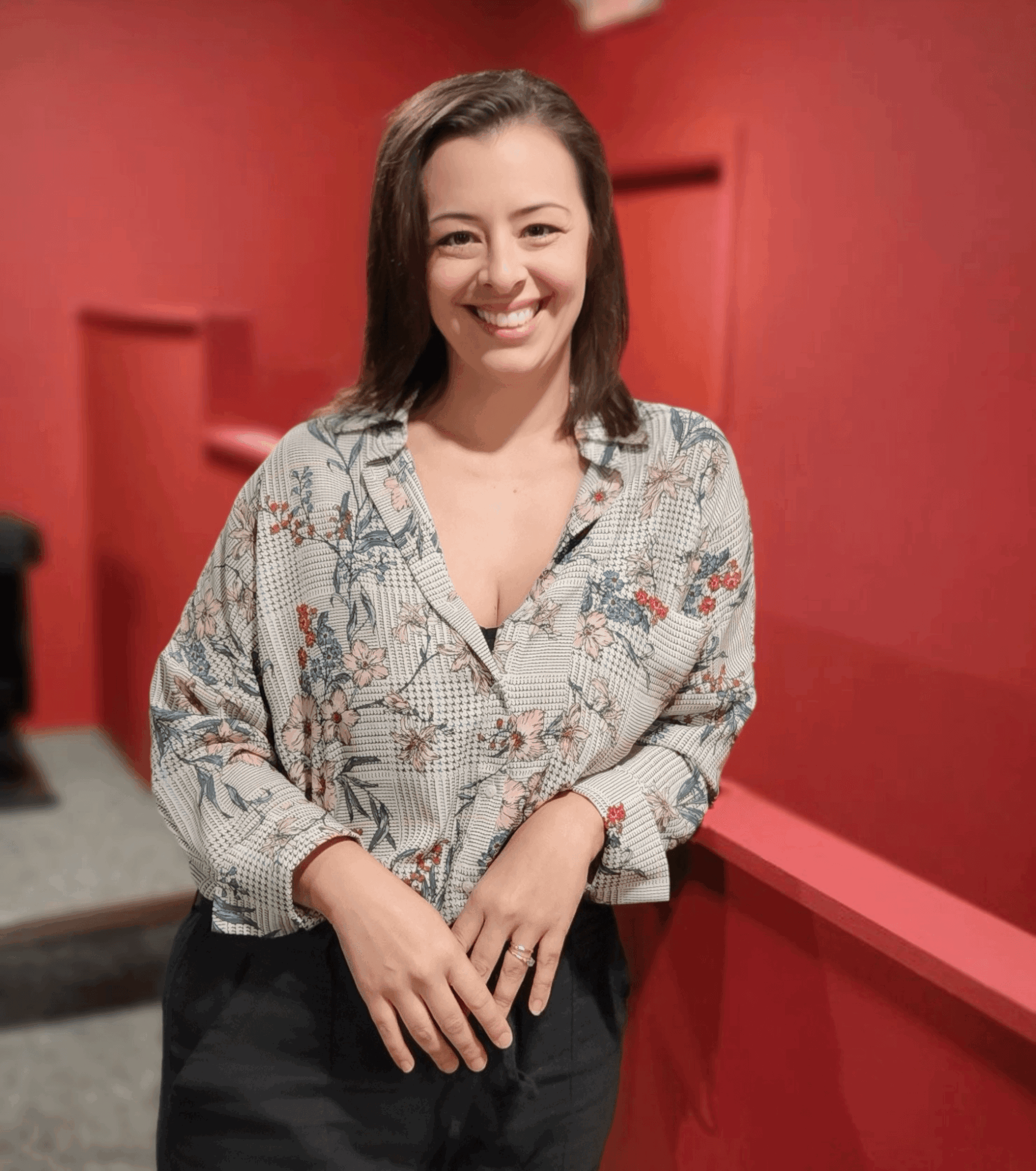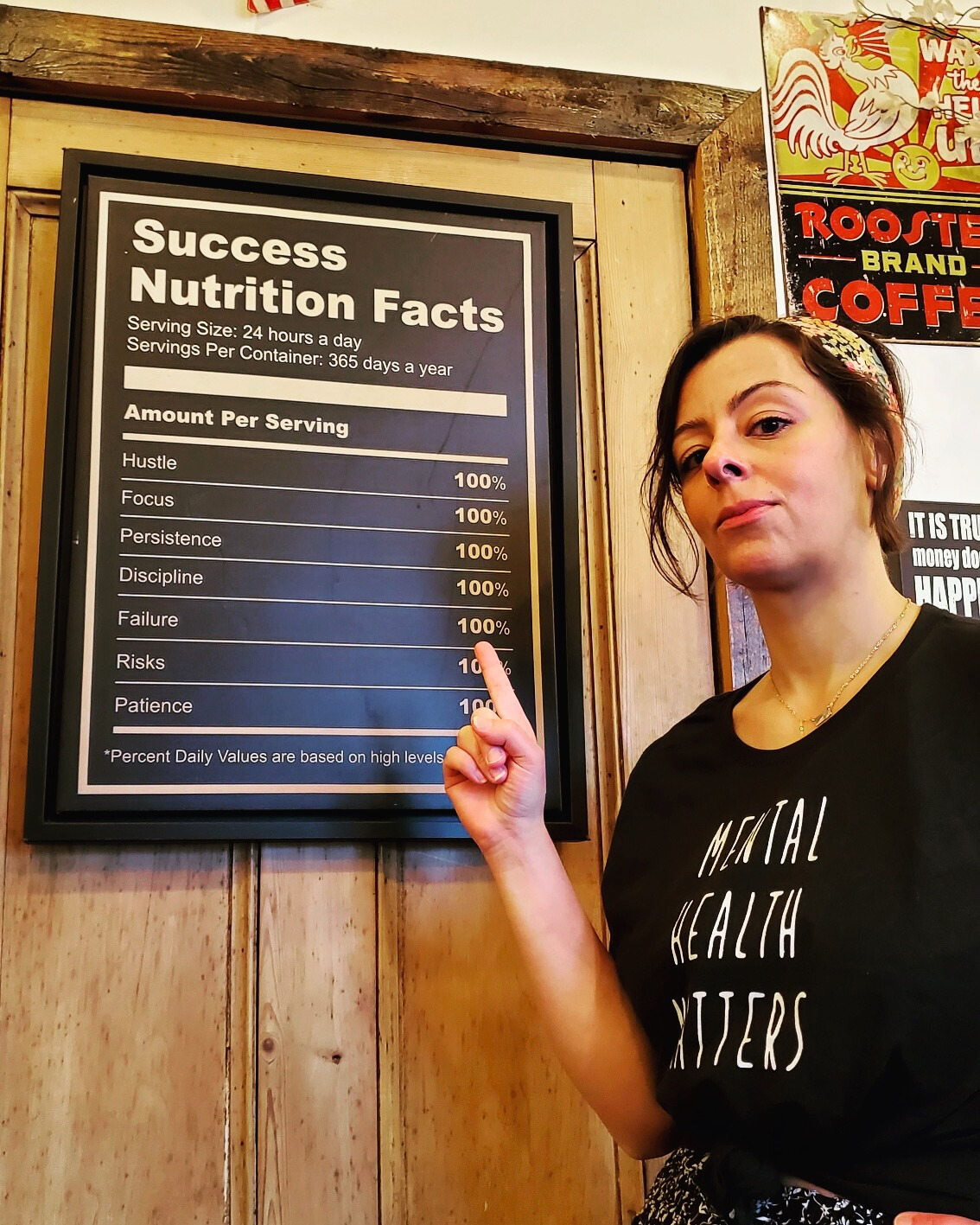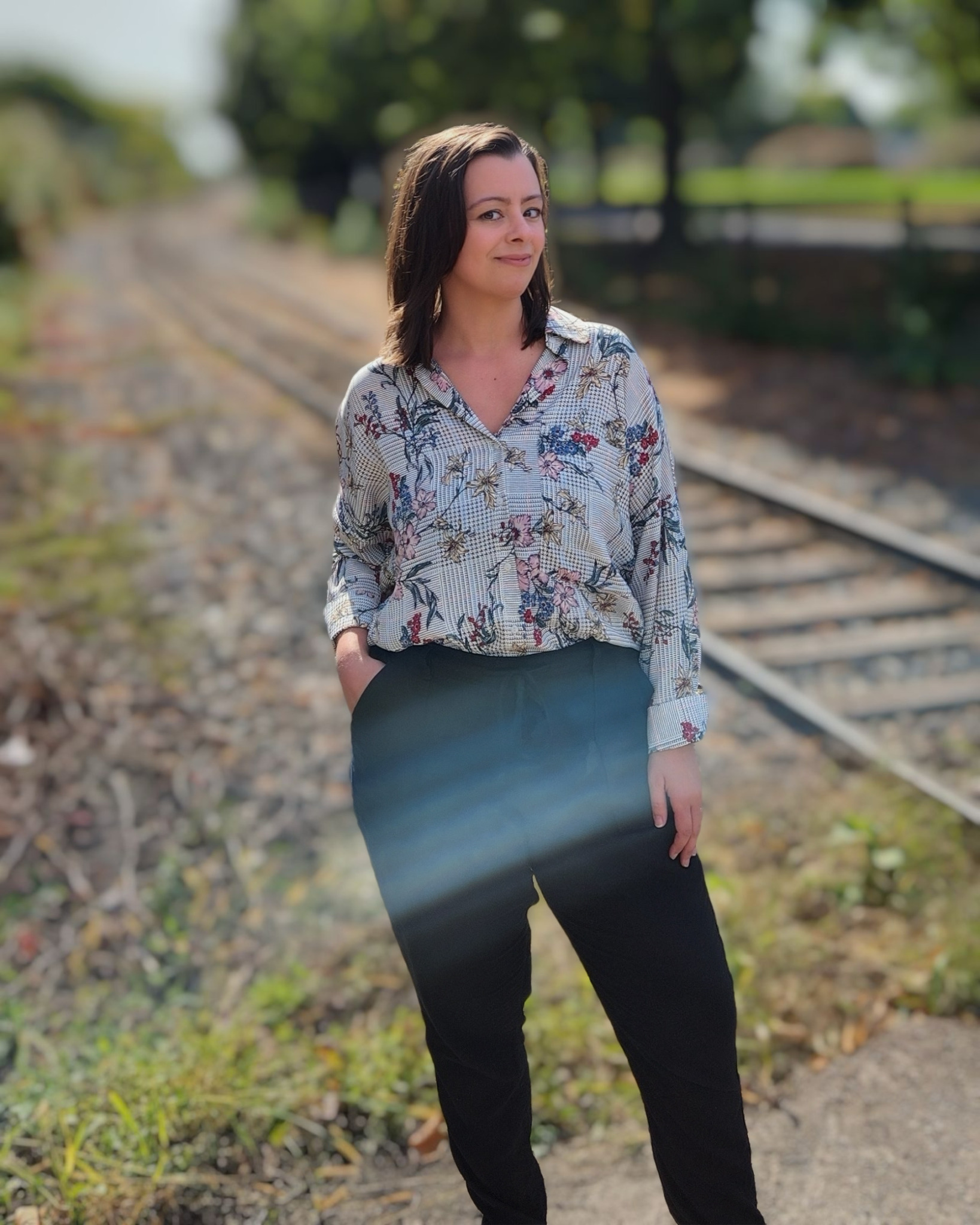We recently connected with Rebecca De Ornelas and have shared our conversation below.
Rebecca, thanks for taking the time to share your stories with us today Can you talk to us about serving the underserved.
Neurodivergent individuals are deeply underserved by every major system we live in: schools, workplaces, mental health, culture. Even the programs built to support them are often underfunded and misunderstood. I focus on individuals with ADHD because that’s where I have the most expertise and lived experience. But all neurodivergent brains are marginalized.
For years, I thought I was just bad at being a person. I was told to try harder. To focus. To grow up. To commit. That I had so much potential, if only I could stop being so defiant, so opinionated, so loud.
I spent most of my life holding myself to unreasonable standards. I tried to excel at everything I was told I was good at, even if I didn’t care about it. I burned out again and again, stuck in a cycle I couldn’t seem to break, fueled by a need to prove everyone wrong. To prove that I was just as good at living as everyone else.
When I became an adult, I was considered a success. But only in the way a woman is often defined as successful in this country: by how much she can support everyone else. I was praised for how quickly I learned, how efficiently I completed tasks, and how useful I was to others. My rebellion was replaced by a hunger to feel useful. Productive. Of service. To everyone but me.
No one looked closer. Not even me.
My journey of self-discovery and advocacy began when my daughter Fiona was ‘diagnosed’ as an ADHDer. Suddenly, I was immersed in research, learning how to support her, and teaching others how to communicate with her. I was also advocating for her to receive basic accommodations for her unique brain.
That’s when I saw it. I saw myself in my daughter.
Fiona is smart. Curious. Emotionally intense. And in just five years, she has already run headfirst into a system that punishes difference. We watched as her school labeled her a behavior problem. They misread overstimulation as defiance. They refused to adapt. And eventually, they did what systems often do when a child no longer fits their mold. They rejected her.
I saw her future flash in front of me. A version of mine. Doing well, on paper, because of her intelligence. Burning brighter than most. Burning out behind closed doors. Drowning in panic attacks and shutdowns. Learning to numb herself just to feel “normal” for a moment. Carrying the kind of shame that starts when you are told — again and again — that your difference is a problem to fix.
The result is quantifiable pain:
ADHD kids receive twenty thousand more negative messages than their peers by the age of twelve.
ADHDers are more likely to experience depression, anxiety, eating disorders, addiction, and trauma. They are more than twice as likely to attempt or die by suicide.
In the United States, more than fifteen million adults have a diagnosis of ADHD. That number is likely much higher. Most women don’t get diagnosed until adulthood. By then, they are often in emotional collapse. They have spent years chasing broken standards, trying to survive in a framework designed to exclude them.
Even with a diagnosis, most people are left to fend for themselves. They receive no roadmap. No real tools. No honest support. Nothing that reflects how their brain actually works.
When systems treat ADHD as a disorder to manage instead of a brain to understand, they stifle what is extraordinary. They punish difference. They extract labor, energy, and dignity.
In my coaching, I affirm what ADHDers have been carrying for decades: the shame, the internalized failures, and the constant fatigue of trying to fit. I help them identify the areas where they are bleeding energy. We then rebuild their lives to reflect the reality of their neurobiology, reconnecting them with purpose, contribution, and the things they are here to bring into the world.
I don’t coach people to survive. I help them reclaim the parts of themselves that were buried under other people’s expectations. I help them show up fully — to create, to lead, and to challenge the narratives that limit possibility, creating new ones that make space for humanity in all its forms.
I am not here to advocate politely for inclusion. I am here to demand it. And I am building a community of brilliant, creative individuals with nonconforming brains who are tired of shrinking to survive. It is time to stop coercing minds into conformity and forcing people to contort themselves into something palatable for the comfort of the status quo.
This moment we are living in is not neutral. Our rights are under attack. Neurodivergent people. BIPOC people. Trans people. Families. Children. Anyone who does not perform their life in precisely the right way, for exactly the right audience, is being told they must serve a version of society built to protect the power and wealth of an elite few — no matter the human cost.
In the face of this systemic threat, we must remember that divergent minds once played vital roles in human survival. The scouts. The innovators. The pattern disruptors. Their place in the collective has always been essential. These were the humans who sensed danger before it arrived. Who carried memory. Who dreamed in nonlinear ways that kept their people alive. That lineage is still alive. And it is still needed. People who can question whether what we’ve been told is normal. People who can name what no one else wants to say. People who were never built to blend in, but rather to perceive, to resist, to regenerate. That was true then. It is still true now.
My work is to be a catalyst in their hero’s journey. I am not the hero. I do not aim to fix. But I will sure as hell ignite the movement for a revolution. A reclamation. For returning divergent minds to their rightful place in the collective.
The neurodivergent community, along with every other group being legislated, erased, and criminalized in real time, is engaged in a struggle for existence. The era of seeking validation from the very systems that seek to erase us is over. If they want to see us as a problem, then fine.
Let’s become a problem.

Rebecca, before we move on to more of these sorts of questions, can you take some time to bring our readers up to speed on you and what you do?
My work isn’t about handing out hacks or pretending discipline and a motivational podcast will solve structural problems. It’s about reclamation—of time, money, energy, and self-worth—for people who have been told their whole lives that they’re too much or not enough.
I didn’t set out to become a coach. But when my daughter Fiona was identified as an ADHDer, I decided to learn everything I could about her brain and ultimately, mine. In the process, I came to see that the distress and burnout weren’t proof our brains were broken. It was instead the cost of trying to function in a world that has no idea how to work with wiring like ours.
Before coaching, I founded Bold Words as a narrative strategy company, helping leaders and creatives stop manufacturing watered-down versions of themselves and start claiming their authentic voices. I helped them harness words and presence as powerful tools, to sound like themselves—bold, unapologetic, unforgettable—and to move people.
That background still shapes my coaching. I don’t just hand people tools; I help them rewrite the story they’ve been living under. Because shame is a story. Burnout is a story. And both can be rewritten.
The ADHDers I coach—entrepreneurs, parents, creatives, professionals—are done with translating themselves into “neurotypical” standards, weary of masking their authentic selves, and tired of apologizing just to stay employed, accepted, or safe. Together, we break negative cycles, achieve sustainable focus, and rebuild their capacity to create, lead, and connect as they truly are, without compromise.
My work rejects every subtle cue that tells divergent thinkers to be quieter or smaller. I’m here to ensure my clients’ integrity and perspective are the foundations of their success. We stop chasing standards designed to exclude us and start building a world where their unique brain wiring is met with dignity.
My proudest moments are when my clients are able to stop blaming themselves for the first time. It’s watching the relief hit when they realize the real problem is the system, not them. It’s seeing them feel human again, not broken.
If you take one thing away from my work, let it be this: ADHD brains are not a mistake. ADHD is not a deficit. It is a distinct neurotype that has been and will always be part of human survival. The only error is a world that tells us otherwise.

We’d love to hear a story of resilience from your journey.
My resilience story doesn’t come from a business comeback; it comes from fighting an institution to protect my child.
My daughter’s early experience with the education system showed me exactly what happens when a fast, divergent brain collides with a rigid, one-size-fits-all framework. The message we received was clear: schools claim to serve every child, but in reality, they sort kids by compliance. And the kids who can’t perform obedience are the ones it discards.
That’s the architecture of an education system built for control, not for human capacity.
Watching institutions try to erase the very things that make my child magnificent forced me into a reckoning. It instilled in me the fire to fight, to advocate for my child, so she doesn’t pay the systemic cost of an education system that demands compliance, like I did.
If this is my story of resilience, then it is one I will continue to live the rest of my life, yet it will not be marked by a quiet endurance. It will show up instead in the radical, political act of refusal to let systems dictate whose minds get nurtured and whose get sidelined.

We often hear about learning lessons – but just as important is unlearning lessons. Have you ever had to unlearn a lesson?
The most important lesson I needed to forget was the false idea that my worth was based on how much I could produce without breaking down.
Like many high-performing women, I bought into the lie that constant effort and burnout were the non-negotiable cost of success. I was the quintessential Burnt-Out Achiever. I was fast, useful, and constantly running on shame and adrenaline. My system was brittle.
My backstory is one of immense, unnecessary cost, decades spent chasing a flawless, unbothered ideal. When I failed, I internalized it, attributing it to my own personal moral failing.
In my training as an ADHD coach, I was able to unlearn that lie and see that I was simply surviving in a system that demands sameness. That perpetual anxiety and exhaustion were the prices I was made to pay for mandatory conformity.
Unlearning that lesson meant giving myself permission to stop apologizing for my wiring and start building a life that actually worked. I swapped a relentless demand for discipline with nervous system literacy, and exchanged a shame that was never mine to own, for defiance.
Contact Info:
- Website: https://boldistheword.com/adhd
- Instagram: @boldistheword
- Facebook: https://www.facebook.com/RebeccaADHDCoach
- Linkedin: Rebecca De Ornelas



